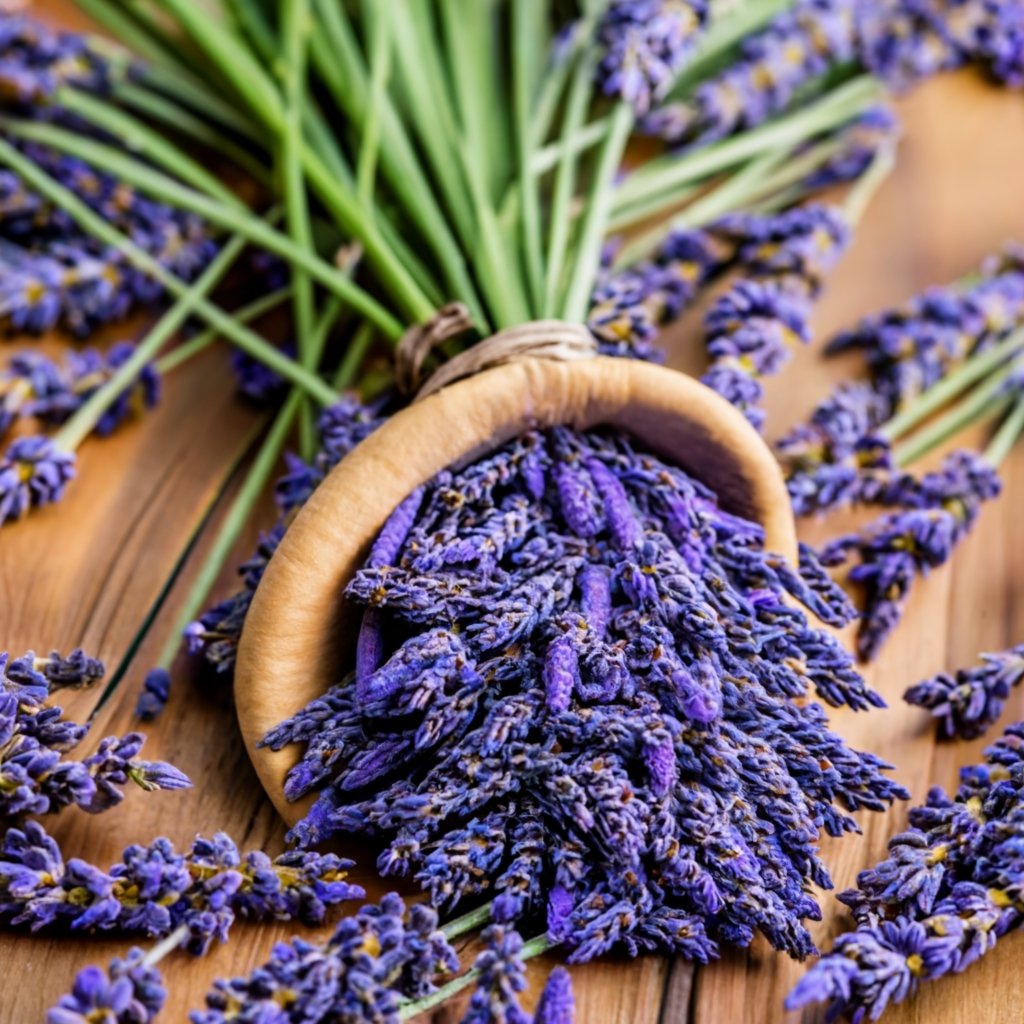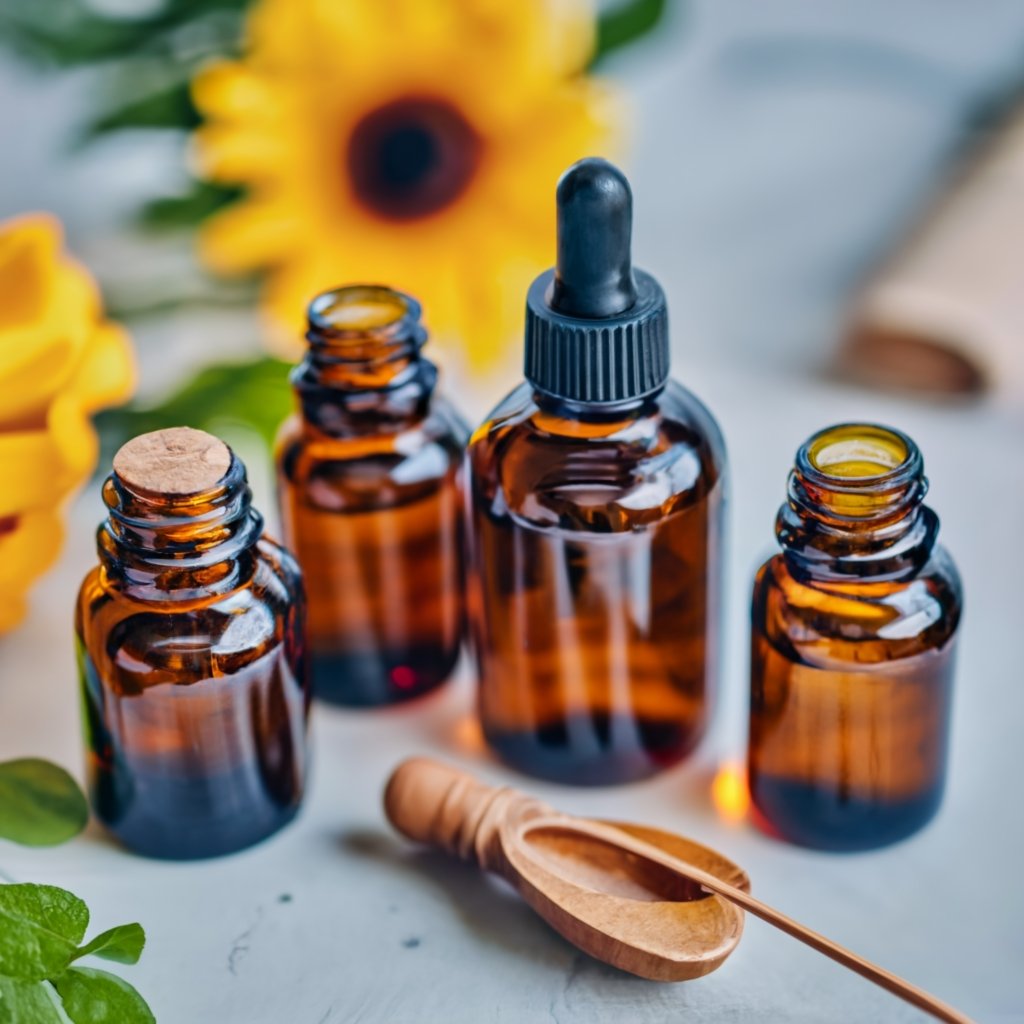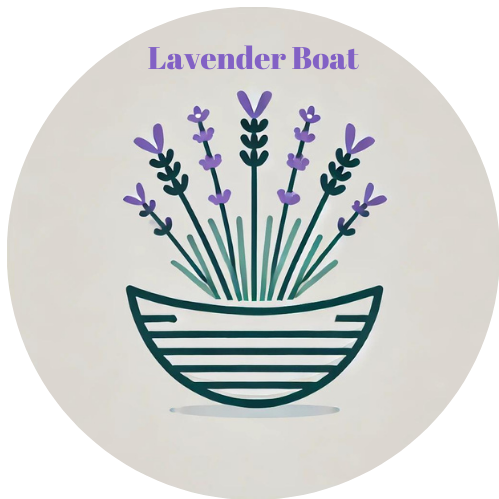Lavender essential oil can be extracted at home through methods like maceration infusion or steam distillation. For the highest quality therapeutic grade oil, steam distillation is recommended.
Listen to this guide
or read on . .
Alchemy with Lavender – Extracting Your Own Soothing Oil at Home
Among lavender’s many gifts is the precious essential oil distilled from its purple buds. This multifaceted oil blends into natural products, perfumes, and aromatherapy remedies prized for their soothing and healing properties. Yet a bottle of this “liquid gold” can be quite costly from speciality shops. An alternative is crafting your own custom lavender oil through simple extraction techniques right at home.
Follow this beginner’s guide to unlocking the secrets of making lavender essential oil using common kitchen tools and harvested garden buds. We’ll journey through oil infusion methods like maceration and steam distillation. Learn proper storage techniques to retain potency. We’ll also cover tips for achieving therapeutic quality oil and when it still pays to buy pre-made.
Ready to tap into timeless alchemy and herbalism? Read on to gain the skills of extracting and blending custom essential oils all from the calm of your home. Slow down, breathe deep, and let the magic unfurl.
How Essential Oil Is Extracted
Lavender oil resides within small glands on the spikes and stems of lavender plants. To release and capture the precious oil two main extraction methods exist:
Distillation – Using steam and condensation to separate oil compounds from water. Requires heating buds and water together in a still.
Solvent extraction – Soaking plants in another liquid solvent like oil to dissolve and absorb the essential oils. Easier home method.
Expression – Pressing or squeezing plants to extract oils. Limited yield.
Hydro or steam distillation produces the highest quality, therapeutic grade lavender oil by fully isolating oil components from the original plants. But simple infusion methods make DIY oil accessible.
Tools Needed for Extracting
To begin crafting lavender oil at home you’ll need:
– Dried lavender buds – 1 cup fresh or 1/2 cup dried.
– Infusing oil – Olive, grapeseed, coconut or jojoba work well. 1 cup oil to 1/2 cup buds.
– Glass mason jar with a tight lid – At least two cups capacity.
– Strainer – muslin cloth or coffee filter
– Bottles for storing – Dark coloured glass, 1-2 oz sizes with dropper
– Steamer pot – For steam method. Stainless steel or enamel, not aluminium.
– Glass or stainless mixing bowl – For steam method, fits inside the pot.
Most materials can be found affordably in grocery or hardware stores. Ensure freshness using dried buds within a year or fresher.
Choosing High Quality Buds
The quality of the lavender buds greatly determines the calibre of oil produced. Avoid old or heat-exposed dried lavender. Seek out buds:

– Just harvested at peak bloom, not early or late season.
– Vibrant in colour, no browning or damage.
– Cut 6+ inches down the stem below the flowers.
– Displaying robust floral aroma when inhaled.
– Grown without pesticides or chemicals.
Also choose flowers from varieties known for high oil content like Grosso, Maillette, Melissa, Super Blue, or Vicenza Blue. Finally, only use buds designated safe for ingestion. Inhaling food-grade lavender oil is safest.
Making a Maceration Oil Infusion
The easiest home extraction method is a maceration infusion in oil:
– Gently crush or chop dried buds to release oil glands.
– Add buds and oil to mason jar until 2/3 full. Shake to distribute.
– Seal the jar tightly and place in a cool, dark cabinet.
– Shake jar daily for 4-6 weeks allowing oil to absorb the plant compounds.
– Strain oil through a muslin or similar style cloth or coffee filter to remove buds.
– Funnel finished oil into storage bottles, and label with the date.
The resulting oil will be high quality but not as concentrated as distilled varieties. Infusion imparts great fragrance for soap, lotion, and homemade products.
Trying Steam Distillation
For the highest grade, therapeutic oil through home distillation:
– Pack buds tightly in the bottom of a steamer pot’s removable insert.
– Fill the pot with water just below the insert rim.
– Bring water to a boil, and reduce to a low simmer.
– Place glass bowl over inserts, allowing steam to pass through buds.
– Cover pot and condense for 60-90 minutes as oil releases.
– Let cool fully before carefully pouring distillate into a separating bottle.
– The clear oil will float to the top for separation. Drain off the water.
– Repeat the process until the water runs clear, and no more oil emerges.
While complex, steaming yields the highest purity and concentration of lavender oil for aromatherapy use.
Storing and Using Lavender Oil
To maintain freshness and therapeutic potency:

– Pour into small, sealed dark bottles filled only 1/3 to 1/2 way.
– Use amber or cobalt blue bottles that block sunlight.
– Store in a cool, dark place away from heat and light.
– If the oil smells off or changes colour, discard it.
– The expected shelf life is 1-3 years.
– Use within a year for maximum potency if making skincare.
– Avoid plastic bottles or droppers which degrade oils.
– Label the bottle with infusion date and variety.
Enjoy your homemade lavender oil in aromatherapy, room diffusers, massage oils, and homemade bath products.
Enhancing the Potency of Oil
If your homemade lavender oil isn’t as strongly scented as hoped, try these troubleshooting tips:
– Increase buds to two cups per one cup of oil.
– Grind buds into a fine powder before infusing.
– Double the infusion time up to 8-12 weeks.
– Ensure buds are highest quality – fresh, undamaged, peak season.
– Use the steam distillation method rather than cold infusing.
– Change plant variety to a high oil content species.
– Combine your milder oil with store-bought blends.
Getting maximum aroma strength takes some experimentation. But properly harvested buds, lengthy infusing, and quality procedures will increase potency.
When to Purchase Pre-made Oils
Despite best efforts, home-extraction has limitations. Consider purchasing pre-made oils when you:
– need large quantities for business or clinical use.
– want guaranteed therapeutic grade quality.
– need an organic certified product.
– want to save time and labour over extracting.
– climate isn’t ideal for growing lavender.
– need rare lavender species not sold dried.
– don’t want the hassle of maintaining plants or drying.
– lack needed equipment or ideal home conditions.
While making your own is rewarding, buying pre-made oil is sometimes smarter when factors align. Compare rates between homegrown and quality store bought.
Final thoughts
What begins as an ordinary mason jar filled with aromatic purple specks transforms into a golden elixir infused with ancient wonder. The simple alchemy of extraction has allowed herbalists across generations to capture nature’s healing essences in portable form. When you cradle a bottle of oil made from your own hands and flowers, a profound connection kindles to an ongoing tradition.
Yet beyond merely following folk methods step-by-step, embrace the mindfulness cultivation these practices foster. Notice how your breathing steadies as you wait weeks for sunlight to coax oil from petals. Feel tension fade from your forehead as you lean over rising aromatic steam. Let the rich scent transport your mind just as it will nurture your body. Blending intention into your homemade oil amplifies its gifts.
No shortcuts exist to cultivating inner calm or producing oil of fine calibre. But engaging fully in the journey, however gradual, offers rewards far beyond the quantity of golden drops accumulated. Discover your own meaning in the sweet slowness of transforming beloved blossoms into precious oil imbued with care.





